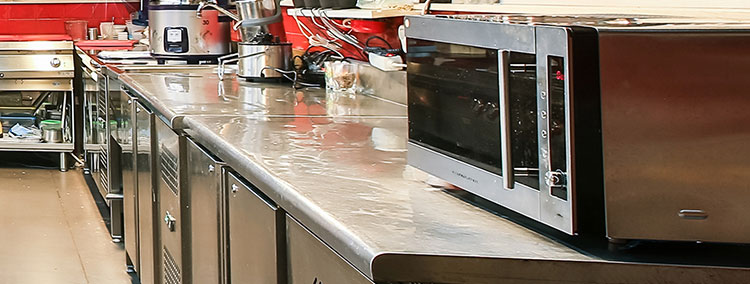
A study published in the international journal of consumer studies looked at 200 homes with and without a dishwasher in four European countries. The study was done over two weeks, and during this period, the participants had to record every dishwashing process.
The researchers would interview and observe the participants concerning their dishwashing habits, and after the two weeks, the results showed that homes with a dishwasher used on average 50% less water and 28% less energy than those without a dishwasher.
So to answer your questions, does a dishwasher save water? Yes, it does.
Did you know you can save even more water by doing the right things? Here are some of these things as given by appliance repair professionals:
Use the right dishwasher
Everything begins here. When you are looking for a dishwasher in the market, buy one rated for energy and water efficiency. If this is the first time purchasing the appliance, learn to read the yellow energy guide label.
In most cases, the best appliances are those with the highest energy rating. Unfortunately, they tend to be expensive to buy.
Run a full load
When it comes to cleaning the dishes, don’t put just a few of them in the dishwasher—you should wait until you have enough of them so that you run the unit at maximum capacity. As you can guess, when you run the dishwasher at full load, you spend less water as you don’t have to run another load any time soon.
Some modern dishwashers have half-load programs to encourage homeowners to run their appliances even if they don’t have enough dishes for a full load. While these programs use less water and energy than a normal cycle, the amount of water they save isn’t half of what you would have spent had you run a full load.
Due to this, you should avoid using this program.
To save money, wait to have enough dishes for a full cycle, then select the eco or water-saving cycle. This way you will save water and energy.
Don’t pre-rinse the dishes.
Some homeowners have the impression that they get cleaner dishes and give their appliances an easier time when they pre-rinse the dishes. Unfortunately, this isn’t necessary as you end up spending too much water.
You can scrape off as much food and grease from the dishes before putting them in the dishwasher, but you don’t have to pre-rinse them.
Most modern dishwashers are powerful enough to remove as much dirt from the dishes, so you don’t need to do the pre-rinsing.
If you have heavily soiled dishes, pre-soak them instead of rinsing them under the tap.
Load the dishwasher efficiently.
Did you know how you load the dishwasher significantly impacts the amount of water the unit consumes? As much as you want to save as much water as possible, don’t overload the dishwasher as this might prevent some of the items from being thoroughly cleaned, and you are forced to redo it, which, as you can guess, means that you have to spend more water and energy.
The right way to go about it is to never load more items in the dishwasher than it’s designed to carry. When loading, load large items at the back and sides of the rack. Don’t place big plates at the front as they will stop the water from reaching the detergent dispenser.
Regularly tune up your appliance.
You will observe all of the above tips, but if your appliance is in bad shape, it will consume a lot more water than it should.
To avoid this, make it a habit to contact dishwasher repair Springfield professionals at least once a year to inspect the appliance and fix any issues it might be having,
To get the best service, ensure that the professional you hire is experienced and knows what they are doing. The last thing you want is to hire someone that comes to cause more problems than were originally there.
Besides hiring a professional once a year, make it a habit to fix the appliance whenever you notice even the most minor problems.
The post Does A Dishwasher Save Water? first appeared on HVAC Repair, appliance repair. The post appeared first on Express Appliance Repair